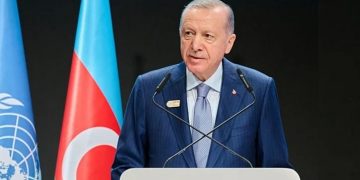THE blue-glass skyscrapers of Moscow City — fragments of Russia’s boom-time dream — are visible from the Kremlin walls, within which there was once hope that those towers could supplant the West’s financial centers. When the sun sets behind them, you can see that many of the offices lie empty.
In fact, the real hubs for Russian banking are in other countries. Moscow’s billionaires squirrel their fortunes abroad, and many businessmen register their companies as British, Dutch, Swiss or Cypriot — anything but Russian. Whistle-blowers would have us believe that even President Vladimir V. Putin stashes his money offshore.
Simply put, Russian money is frightened of Russia. This is because after Boris N. Yeltsin made the transition to crude capitalism in the 1990s, Mr. Putin never delivered secure property rights. That makes Russian money paranoid; since 2008 alone more than $350 billion in capital has fled the country.
These billions craved secrecy and security, and financial islands inside the European Union welcomed them. A love affair started, especially, between Cypriot banks and Russia’s cash. Only weeks ago, the Cypriot capital, Nicosia, was Russia’s most important offshore accountant. But today this financial paradise lies in economic ruin, its bloated banking sector wrecked by a gigantic exposure to Greek bonds. To save Cyprus from bankruptcy, a decree from the European Union, the International Monetary Fund and the European Central Bank (known as “the troika”) is now confronting depositors in Cypriot banks with the loss of as much as 60 percent of deposits greater than $100,000, alongside tough new capital controls.
Nicosia was the second capital of Russian finance, after Moscow, and Russians are believed to account for the majority of the foreign accounts there worth over 100,000 euros.
According to the I.M.F., Cyprus was the destination for 34 percent of all outward investment from Russia in 2011, and accounted for 28 percent of foreign direct investment in Russia. But these gigantic flows did not reflect real investment overseas. They were overwhelmingly Russian cash “round-tripping” through Nicosia shell companies and re-entering as foreign investment. As the German finance minister, Wolfgang Schäuble, pointed out, this has raised suspicions of money laundering.
On the other hand, many legitimate Russian businessmen had funds there as well. Russia’s steel oligarchs controlled their companies through Cypriot holding companies. Many state-owned pillars of Russia’s economy also have Cyprus accounts, including the oil company Rosneft and the banks Sberbank and VTB.
How did so much Russian money end up in Cyprus? Mr. Putin took office in 2000 promising a “dictatorship of law,” but the moneymakers lost confidence in him. By 2003, the country’s richest man, Mikhail Khodorkovsky, had been arrested, ultimately to be stripped of his biggest holdings and thrown into a Siberian prison, making it clear that what Mr. Putin really had in mind was manipulating the law to control any potential challenge from the oligarchs’ wealth.
So the capital flight that had begun in Russia’s “wild 1990s” never stopped. And by 2011 the I.M.F. reported that all of the top five national destinations for foreign investment in and out of Russia were tax havens — a sign that the funds were really offshore Russian money.
Russia’s middle class lost faith in Mr. Putin after 2008, when in the midst of the global financial crisis, the bureaucracy remained mired in Gogolian incompetence and venality. He had gutted the courts, media and local governments while focusing power in his party. That left little more than a servile web of patronage, a recipe for embezzlement of public funds. So more Russians put money in “safe” places like Cyprus.
Matters were made only worse when protests over election rigging charges in 2011 revived fears of a national implosion.
Last year, official capital flight hit $56 billion, and Mr. Putin’s own central bank calculated that two-thirds of that total might be traceable to illegal activity like drug money, kickbacks or tax fraud.
Why did Russians flock to Cyprus? Cyprus was in the European Union, with its rules and overseers — a nearby legal paradise where state confiscation was unthinkable. But now the troika’s raid on their accounts — Russians call it a theft — has given Russians a new dose of anti-Western passion and paranoia.
Whatever remains of the Russian fortunes in Nicosia seems sure to flee again — but not back to Russia. It may go to other European havens, like the Dutch Antilles and the British Virgin Islands. Malta and Luxembourg are possibilities, but analysts have both on bailout watch.
Meanwhile, Brussels is not impotent. The European Union must clamp down on offshore havens, insist on transparent banking and toughen up on money laundering. This is austerity Europe — and bloated tax havens not only put Europe at risk but also make its financial system complicit with offshore corruption.
But it cannot erase the truths exposed by the Nicosia bust. Europe, it turns out, is studded with vulnerable, contagious tax islands, and their availability only compounds Russia’s deeper problem: it is both too corrupt and too paranoid to keep its billions at home.
Ben Judah, a journalist, is the author of the forthcoming book “Fragile Empire: How Russia Fell In and Out of Love With Vladimir Putin.”
The New York Times













